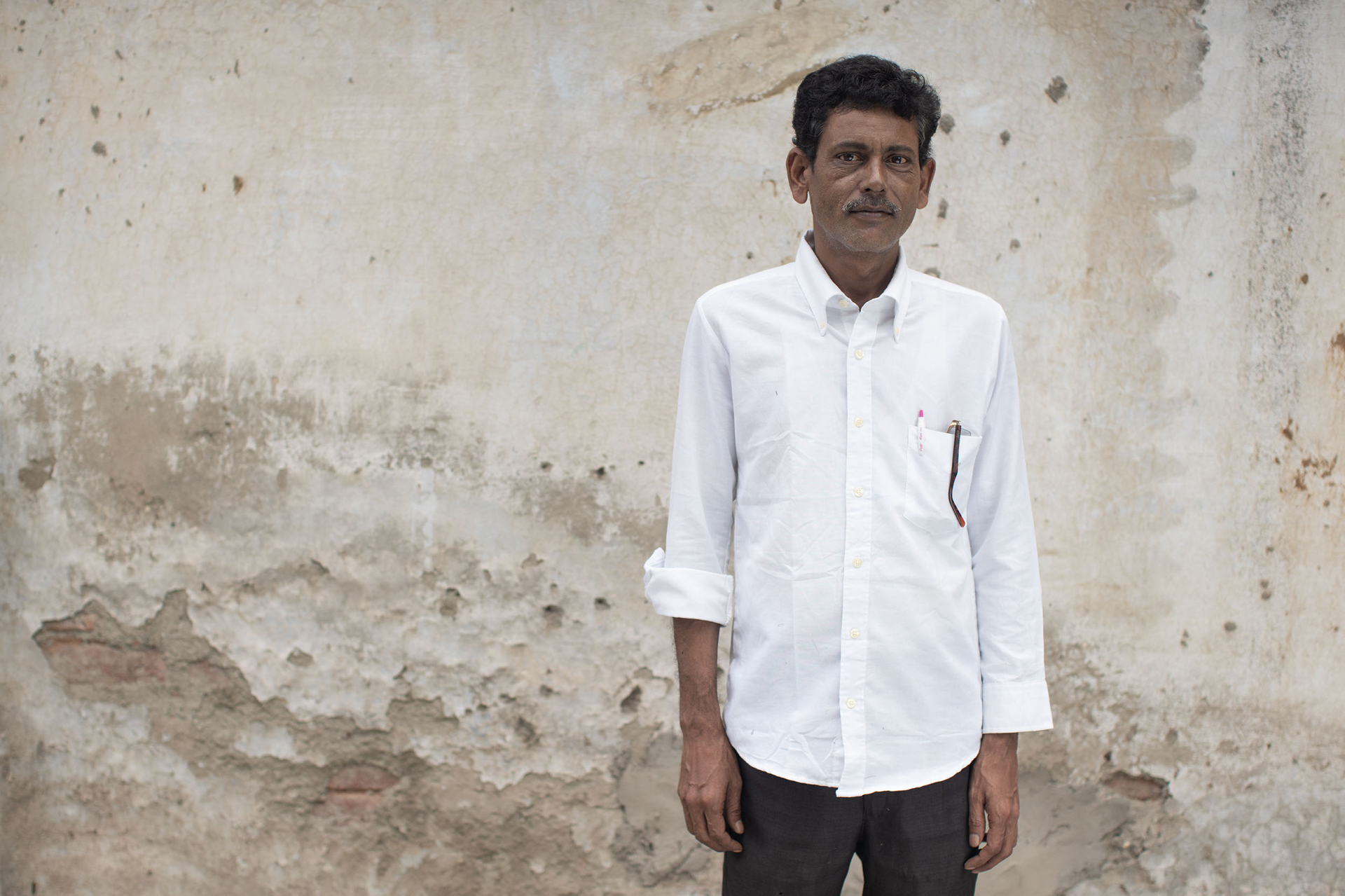How did you start in your profession? Was it a family tradition, and was it expected that you would continue the craft? If it wasn’t a family trade, did you learn later, and who taught you?
After I passed my tenth standard, I went to Mumbai to learn embroidery work. My uncle is an embroiderer, and he taught me the trade.
Are you proud of your craft? Are you proud to be an artisan? How important is excellence and the quality of your product for you?
Yes, I am very proud of my work. I always try to give my best and achieve perfect work.
Would you like to see vocational training with certification for your craft, or do you feel that the current system of training on the job is sufficient?
Yes, I would like it if vocational training and certificates were available.
When you work with a designer, do you have the opportunity to influence the design? Is it an exchange of ideas and a collaboration?
I work with one designer, and she gives me opportunities to have a say in how to execute the work and what techniques to use.
Innovation has always been an important part of craftsmanship. For a technique to survive in the future, it has to adapt. Is this a relevant topic for you?
Yes, innovation is very important in my craft. Yes, I would always be ready to adapt new techniques in the future.
Do you work in a fixed relationship with one designer, or are you working for several different labels?
I am only working for White Champa at the moment. And yes, it is a fixed relationship.
Is your work as an artisan well respected, and is it possible to earn a living wage with your craft? Do you think there needs to be a stronger political program to further the cause of crafts?
Yes, as a craftsmen I feel I get quite a lot of respect. But with the Covid-19 situation, we are not earning enough at the moment. I feel there is a need for a stronger support from the political side.
